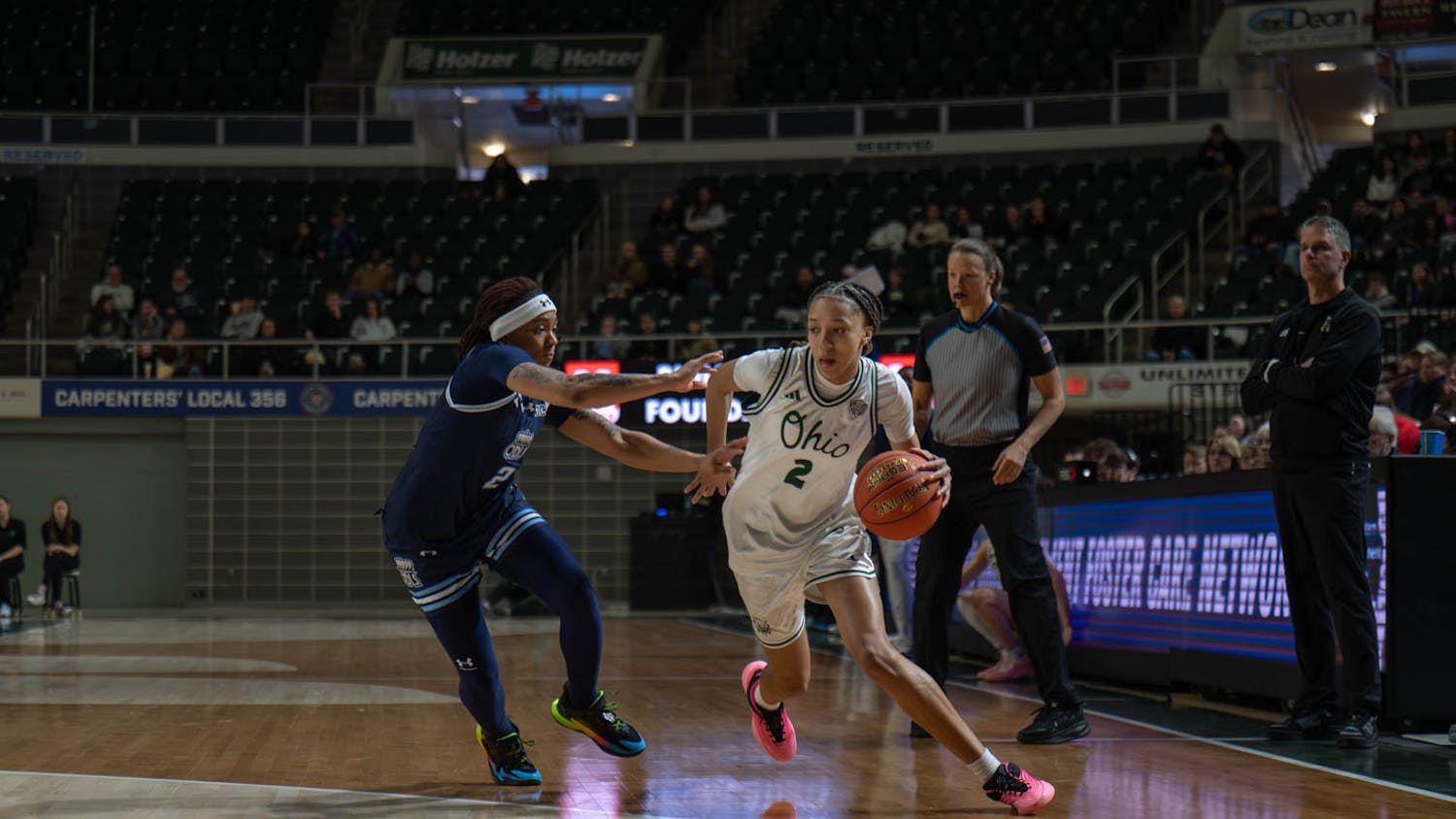A new therapy puppy is in training to be added to Ohio University’s Counseling and Psychological Services therapy dog staff.
Penny, named by students at OU, is a four-month-old Aussiedoodle. She will begin seeing clients after she becomes a certified therapy dog in July 2019, Rinda Scoggan, a senior counselor at OU CPS, said.
Scoggan also owns the two other therapy dogs at CPS, Buddy and Dug. Buddy is 12 years old and because he is semi-retired, Scoggan knew she needed to find a puppy that she could train.
“I pretty much trained all my life,” Scoggan said. “My dad used to train bird dogs, I always pretty much trained dogs.”
Right now, building trust with Penny and getting her socialized with others is important, Scoggan said.
“We are already just kind of pulling her ears, playing with her tongue, picking her up …. let her know that I can do anything with her, and I'm not going to hurt her,” Scoggan said. “She has to trust that I'm going to ask her to do things that may seem weird, but she just trusts that I'm not going to hurt her.”
Penny is also slowly starting to become used to the CPS offices.
“Having her here where this is normal to her, it's not scary, is the most important thing of socializing and allowing her to be comfortable here just like she is at home,” Scoggan said.
One of Penny’s strengths that Scoggan has noticed is her curiosity.
“She is the most curious baby and she learns quickly,” she said. “She reminds me of Buddy when Buddy was small, that you can just show her how to do something a few times and she's like 'Oh, okay. I can do that, I got that'.”
After Penny becomes certified, Scoggan will probably bring Penny in two days a week, the same as Dug. Penny will visit with clients in Scoggan’s sessions, make appearances with some groups and other activities on campus, she said.
“Last year we went to Bromley (Hall) and they did a program around Dug and Buddy,” she said. “We see 60 to 70 students during that time and the dogs get to hang out and a lot of students miss their dogs at home.”
There are other programs on campus that allow students to interact with dogs, such as 4 Paws for Ability.
Samantha Girvan, president of the OU branch of 4 Paws for Ability and a senior studying forensic chemistry, thinks having the dogs on campus are good to educate students and the public on how to interact with them.
“So, our (dogs) are in training and people can pet them but we ask that you ask first because if it was a real service dog and they just went up to pet them, that person could potentially not be alerted to something that is supposed to happen,” she said.
Sometimes, the dogs could become distracted from their owners, who could potentially die or get hurt without the attention of their service dog, she said.
While therapy dogs and service dogs are both working animals, they have two different purposes.
According to the U.S. Department of Justice, a service animal has been individually trained to perform tasks for a specific individual, while a therapy animal solely provides comfort just by being with a person.
Although the dogs serve a specific purpose, they also have a life outside of work.
Scoggan said Penny likes her belly rubbed and likes to chase the goats and chickens at home.
“I think she’s going to do really well. She has that outgoing personality like, ‘Yeah, I can do that,” she said. “Everyday I think she acts more like Buddy, and Buddy is pretty smart.”






